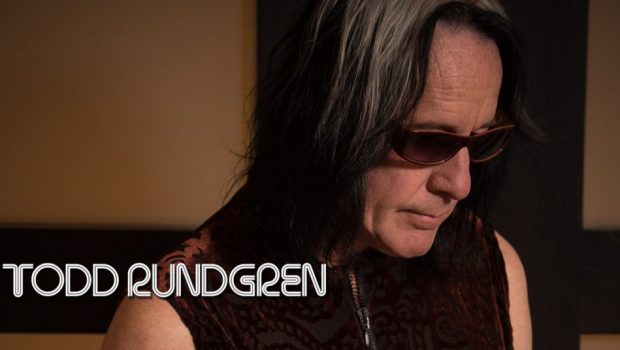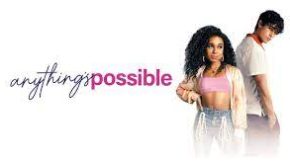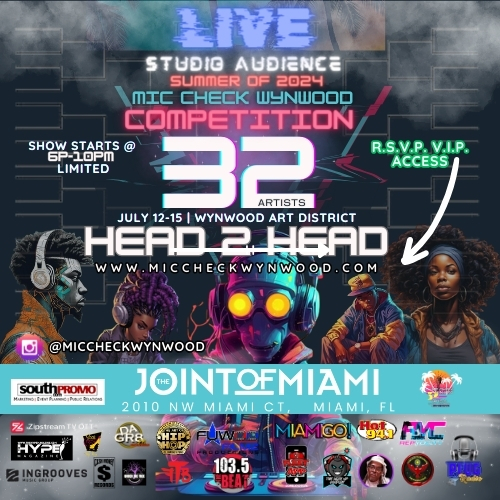Todd Rundgren On His Latest Album “White Knight,” His Upcoming Tour, Writing For Broadway, And His Collaborations
Todd Rundgren first earned attention with the Philadelphia-based band The Nazz in the late 1960s, a few years after he had graduated from Upper Darby High School. Things got bigger and better for Rundgren when he went solo in the early 1970s, also branching out as a producer. As a recording artist, Rundgren was responsible for hits like “I Saw The Light,” “Hello It’s Me,” “Can We Still Be Friends” and “Bang The Drum All Day.” As a producer, beyond producing Meat Loaf’s record-setting Bat Out Of Hell album from 1977, Rundgren has been at the helm for major albums by Grand Funk Railroad, XTC, Cheap Trick, The Band and The New York Dolls. Rundgren has also worked on a variety of cutting-edge projects over the years, developing one of the first computer paint programs in the early 1980s, co-developing the computer screensaver system Flowfazer, and starting a subscription-based music service for fans in the 1990s long before any notable artist did. And that’s without talking about the music he composed for Pee-wee’s Playhouse or his work with the bands Utopia and The New Cars.
Simply put, Rundgren has never stopped touring or recording. His latest album is 2017’s White Knight, which features collaborations with Robyn, Daryl Hall, Donald Fagen, Joe Walsh, Trent Reznor, Bettye LaVette, Kasim Sulton, and Dâm-Funk. I had the pleasure of chatting with Rundgren by phone about White Knight and plenty more. Unfortunately, bad cell phone service ended the call abruptly, or else I would have asked the legendary artist about his tiki bar in Hawaii, how he learns about emerging technology, and who he thinks is doing things right within the music industry these days.
Todd Rundgren is now on tour, including upcoming dates at the Wellmont Theater in Montclair, New Jersey (December 8th), NYCB Theater in Westbury, New York (December 9th), and Park West in Chicago (December 16 and 17). More tour dates and other information on Rundgren can be found online at www.todd-rundgren.com.
Every time I have seen you in Westbury, New York it has been a totally different touring configuration. Which show are you doing at Westbury this time around? Who is in the lineup?
Todd Rundgren: This is the show that we took out in the spring and also, we trimmed it down a bit… So it is basically my usual band, Prairie Prince, Kasim Sulton, Jesse Gress and I want to say John Ferenzik retired from the road, so it is Greg Hawkes now on keyboards. I have got my two singer/dancers — Ashle Worrick and Grace Yoo –and me, so there is seven people on stage.
That is a pretty big lineup for you. I remember a video from Japan where it looked like you had a 10-piece band. Was that the biggest you have ever toured with?
Todd Rundgren: That was our biggest touring band, yeah. It was right after Nearly Human… Another album after that we did everything live in the studio and I decided to take the core of that unit out on the road. I believe it was 11 pieces counting me, so that was pretty big.
One of my favorite things about the show you did at Westbury last year was that you gave a disclaimer saying, “I am going to play a lot of the songs that you want to hear but it might not be in the style that you want to hear.” Basically a “Don’t complain about it.” Did you get a backlash from doing that? Or did you actually just find enjoyment in giving a disclaimer?
Todd Rundgren: I think that people are grateful if I am playing anything at all that is recognizable, but that disclaimer kind of goes with a particular kind of show. It is called “ An Unpredictable Evening With,” and we have a list of about 50 songs for that show and I just start pulling songs off the list in no particular order. Just whatever it feels like, works as the next song, and that is just kind of a tour that usually I — when I am not going out for a very long time and I don’t have a lot of time for preparation — that is usually the kind of show that we put on.
People enjoy that because, as I say, there is some familiar material mixed in with the unfamiliar material. So on this tour we are actually starting out with one “Unpredictable” show, because we had accepted a date at a venue that wasn’t big enough to hold the set that we were on the road with back in the spring. So we decided to return there just to do one “Unpredictable” show and then we are going back to doing the large production again for the rest of the year.
When I had the pleasure of interviewing you about 15 years or so ago, you had said that you didn’t want to be playing “Hello It’s Me” and “Can We Still Be Friends?” when you are 80. Are there songs that you really do like performing though that are popular among fans?
Todd Rundgren: I think there are a few that I enjoy playing perhaps as much as the audience enjoys hearing, but everything gets tiring after a while if you play the same song in the same order night after night after night. You start to get a sort of “auto-pilot” thing going, which is isn’t great for your body. I suppose the audience will be satisfied simply hearing the song even if they knew I wasn’t enjoying it when I was playing it. So I think the idea is to just keep things mixed up from tour to tour and don’t get into sort of a rut or place where you can’t escape from the expectations that people have.
Will you be playing anything from White Knight on this tour?
Todd Rundgren: Oh yeah, we will be playing quite a bit of White Knight. Of course we don’t have… In case any of your readers aren’t familiar with it, it has a lot of collaborations on it and we have yet to get one of my collaborators on-stage with me. So that means a lot of the material we are not able to perform because we don’t have the actual original performers, but having said that, there is enough material that I could cover that we get to at least probably half the record.
White Knight really sounds, because of the collaborations, like a mixtape. When you were starting to helm the album, did you know that it was going to be full of collaborations and sound like that?
Todd Rundgren: Well, one could make the assumption that if you work with a variety of people who themselves represent a variety of genres that it is not going to have that sort of coherence if it is, as if it is the same band and the same people and the same writers and that sort of thing. You would expect that it would go a lot of places. There was no particular concept when I went into it except to see what would happen if I started working with other people. Most of my recording recently, since I live in Hawaii, has been just me, because it is too difficult to get people to drop by for a session. But we are starting to feel like a little insular and I needed some extra input, so that is why I got into the concept of collaborating on this record.
Your albums tend to, if I can generalize, be the opposite of the last one done. So after doing such a collaboration-heavy album, does it make you want to do that again? Or could the next album be just you doing everything?
Todd Rundgren: Well, I am trying to think a little bit less in album terms. A lot of that has come about because with the changes in the record industry you would get like a one-album deal at a time. So a lot of my recent recordings have been under an arrangement that was kind of close-ended. Once I delivered the album things were done. I have got a little bit more of an open-ended arrangement with Cleopatra Records who released this record, so we are going to be doing like a deluxe edition with some additional collaborations on it. I may just continue this until I run out of people to work with.
I had assumed that with all the albums that you produced for other artists that there are a lot of other collaborators that you could revisit. For example when you worked with Bad Religion or Splender or someone like that.
Todd Rundgren: That is always a possibility, although it is a little more difficult to collaborate with a group than it is to collaborate with a solo artist, although it is not outside the realm of possibility. So far most of the people that I have worked with have an identifiable style of their own but, yeah, it is an interesting concept. The idea of collaborating with what is essentially a musical group rather than an individual.
But having said that, there are still individuals that I have worked with that I could possibly hit up to do a collaboration with. The artists who appeared on the record, it is not all the people that I kind of hit on to do a collaboration. Many of them did accept, but it has a lot to do with timing and focus and delivery and that sort of thing. So there are other possibilities out there of people that I had worked with, but we had to sort of remove it from the deadline aspect. In other words, the people on the record are the ones who delivered in time. (laughs)
I would imagine somebody like you would have tremendous archives and amounts of unreleased material, because I remember 15 years ago when you had put out “I Hate My Frickin’ ISP,” you were doing a subscription service. Have you been prolific in the years since?
Todd Rundgren: Well, I actually write differently than most other people do. I still have this tendency to think in terms of, you know, the larger format, the album format. So I will on occasion write a song that doesn’t necessarily have a larger project behind it. But for the most part, when it is time to make a record, I start to focus my thoughts in a different way. I do a lot of research to see what is out there and what I might co-opt into my own kind of hybridized style, and then kind of try to do a little bit of writing every day while I am putting together a larger project.
Once I get the larger project done I am often exhausted, I guess, and won’t write for a couple of months. But with these collaboration things, other people are feeding me ideas, and that changes the whole dynamics. I don’t have to wait around for the inspiration to suddenly strike me. Someone will send me an idea and that will set me off on the process.
That sounds very in line with how artists do co-writing these days for other artists. Have you ever thought about getting into the co-writing game and writing for different artists? Or does that not hold your interest at all?
Todd Rundgren: Well, actually I did in a couple of instances write some artists that I was collaborating with. When I approach somebody, my philosophy is pretty open. It could be an idea that they have that they haven’t been able to finish. It could be some germ of an idea that I have and I will send it to them and see if it inspires anything. And if nothing else, I would eventually just ahead and write a song for them.
In the case of White Knight, for instance, I wanted a girl singer with a real sort of just a pop voice. Not typical kind of historical R&B that you hear so much nowadays, so I wrote a song for Robyn. I essentially wrote to her voice, so it isn’t as if I couldn’t do that for somebody else, it is just I haven’t thought about it much.
Something else interesting is you have had a lot of firsts within the last five years or so. You did your first tour of Australia and you got an honorary doctorate from Berklee, for starters. Are there other goals that you are working towards?
Todd Rundgren: We have been trying to get a Broadway musical project going for several years now, and the hang-up isn’t the music, because there is plenty of that to draw on. It is trying to come up with a story that aligns with the kind of thing people want to mount on a Broadway stage. So it is surprisingly difficult considering that where things can possibly go, you know?
You’ve got a lot, I don’t know if they are all groundbreaking, but it is certain ways that you open up Broadway to whole new audiences. I’m hoping to be able to accomplish something like that in a musical way, The Book Of Mormon or Hamilton brings in a new audience. People who aren’t used to going to a Broadway show and so that had made the possibilities a lot more interesting and something that we would like to try and take advantage of.
Would that be a jukebox-style musical where it would be weaving in various songs from your catalog in with a story?
Todd Rundgren: Well, the basis of it would be catalog songs, but we expect it that there is going to have to be new music written to fill out the story, whatever that happens to be. So it would be a combination of both, new and old material.
Are there any of those jukebox-style musicals that you think really did it well? That aren’t embarrassing and are great for the legacy of the artist?
Todd Rundgren: Well, I have to admit that I haven’t seen many. I enjoy Broadway musicals, the ones that are kind of like [Stephen] Sondheim and Rodgers & Hammerstein and people like that, you know? Not the more contemporary Jukebox. [interview cuts off]
Tweet








































